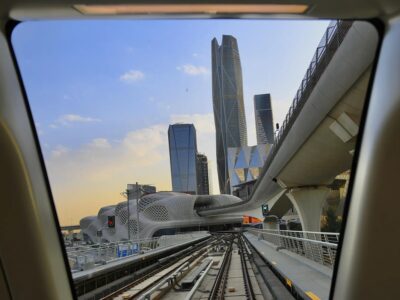This year’s COP27 gathering demonstrated the strong intentions of nations, NGOs and private entities to commit to carbon neutrality and to face environmental challenges together. Now is the time to continue the momentum with a collaborative, science-based approach to the challenges we all face.
In November, 3M joined other global corporations, governments and non-governmental organisations at the 27th Conference of the Parties (COP27) in Sharm El Sheikh, Egypt to participate in the ongoing global dialogue and planning for combating climate change.
We sponsored and participated in two discussion panels at COP27 centred around two key themes; energy security and collaborations and partnerships as we believe that ensuring clean energy supply for all and working in partnership will be two key drivers in the continuing fight against climate change.
Ensuring security of energy supply is a key issue for 3M, as the drive for uninterrupted availability of energy at an affordable price is something that is still out of reach for nearly a billion people globally. Democratising the ever-increasing need for energy is crucial to ensure that disparity between nations is minimised.
During this panel we drove the discussion forward about how we can firstly ensure that supply is uninterrupted both in near and long-term scenarios and secondly how we can ensure that the energy generated is as clean as possible. There are huge opportunities for policy makers and scientists to innovate in this area, which leads to our second panel’s focus, collaborations and partnerships.
The fight against climate change cannot happen in a vacuum and collectively we will only be able to meet this challenge through collaborating and bringing together thought leadership and action from government entities, NGOs, policymakers, corporations and the scientific community.
Through our panel discussions we wanted to get into the detail of the technologies and policies to respond to the global energy crisis and to focus on how countries, corporates and public organisations can drive near-term solutions for energy sufficiency.
And something we really wanted to bring into sharp relief was disparity and individualization of solutions. We wanted to create a space where all parties could work together to identify the opportunities and differences required in technology and public policy for the Global South versus other developed geographies that will ensure energy access for all.
We operate across a lot of industries, so we realise that we have an immense ability (and responsibility) to enact change and provide leadership. We are also a company that’s firmly rooted in science, so that’s where we return to in order to find solutions to challenges.
This is why we have committed to achieving carbon neutrality in our operations by 2050 and we have also met many substantial short-term goals, including reducing our Scope 1 and 2 emissions by 75 percent since 2002, which includes a 26.1 percent reduction since 2019 and surpassing its 50 percent milestone of renewable electricity by 2025, with more to come in the next three years and are now investing $1 billion over 20 years to accelerate air and water stewardship and reduce our use of plastics.
Here in the UAE, we are especially susceptible to the impacts of climate change, due to our already hot and arid climate. The UAE State of Climate Report 2021 shows that in the UAE we are very likely to be impacted by rising temperatures due to the greenhouse effect.
Aside from the obvious environmental impacts there are wider impacts, like greater pressure being put on hospitals and medical clinics due to heat related illnesses, impacts to infrastructure like our roads and buildings and then of course, there will be economic impacts. These will be reduction in productivity on a human level, rising electricity and production prices, just to start.
So, at the very core of it, the future of 3M as a corporation and the future of our planet are inexorably intertwined.

So where does this lead us? This prompts us to strive more deeply towards innovation and new ways of thinking about how we do business as a manufacturer and how we continue to meet the needs of our millions of customers globally whilst still providing them with the quality and standards they expect from us.
Since 2019, every new product that enters the 3M commercialization process is required to have a Sustainability Value Commitment, demonstrating how it impacts social equality, circularity or climate efforts.
3M is dedicated to progress through science using its 51 technologies to develop sustainable products, while also implementing other leading technologies like thermal oxidation and reverse osmosis to implement carbon emissions and water reduction in our own operations.
And in 2023 we will continue to push forward to ensure that we continue to help our customers reduce their GHGs by 250 million tonnes of CO₂ equivalent emissions through the use of our products by 2025. The good news is that we’re already 100 million tonnes towards that goal.
In 2023 we will also see the UAE host COP28, and we look forward to embracing this tremendous opportunity to highlight the progress made in the collective fight against climate change.









